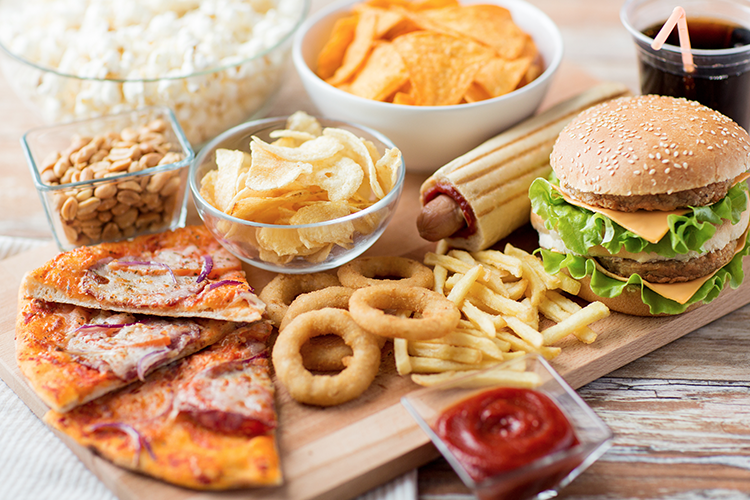Blog
Your health can survive one unhealthy meal
 One can take health into their own hands by choosing what they eat. But knowing how to go about it can be confusing in a time of conflicting and changing dietary advice!
One can take health into their own hands by choosing what they eat. But knowing how to go about it can be confusing in a time of conflicting and changing dietary advice!
We are in an age where we are inundated with ideas about how we best feed ourselves. Whether it be eating clean, vegan, ketogenic, paleo – we all know the list goes on.
The reality is, advice around what we eat will continue to change as science uncovers more around what serves us and what is detrimental. But ultimately, if you choose to have real, whole foods most of the time, you are onto a good thing.
How that looks on a dinner plate can vary from person to person. We are all unique with a unique genetic makeup, microbiome, and set of circumstances, and these can influence what is best for us to consume as an individual. And we may require different things in our lives at different times.
Just don’t be too hard on yourself when making your food choices. Try to keep your approach to nutrition simple, as stress created around this process can potentially counter all the good we are trying to do.
So, do what is right for you, and don’t overthink it.
Do what is right for you
Whilst it is always handy to follow good advice when it comes to our health, we have to learn how to listen to our body and mind at the same time.
If you find you are following a specific dietary regime, but there is an element of it not quite working for you, relax with it. Some people find they respond better than others to some carbohydrate-rich whole grains like rice and oats. Others thrive on having more whole food fats like avocado and olive oil. Some can tolerate only a little dairy, whilst others enjoy some yoghurt, cheese, and a latte every day.
Listen to your body, monitoring things like digestive function, sleep, mood, energy, skin reactions, headaches, weight, and any other number of symptoms. Your body will tell you if something is off, and what you eat and drink may be driving the issue.
For example, how is your energy and clarity of mind after a meal of pan seared fresh fish served alongside a spinach, avocado, and olive oil salad, compared with deep fried fish with deep fried chips. Are you energised or sluggish? Are you alert or foggy brained?
If you focus on mostly whole food, like fruit over fruit drink, or roast sweet potato over deep-fried French fries, you will probably feel better. And while you are tuning into the voices from your body, it is helpful to strike the balance of not overthinking what we eat.
Don’t overthink it
Obsessing over every morsel that passes our lips can do more harm than good, despite choosing to eat and drink well.
Stress can counter much of the goodness we attempt to put into our body. Whether you are being chased by a saber-toothed tiger or fretting over kilojoules, your body perceives either as danger, and stress hormones are produced to prepare you to flee or fight. This is when our sympathetic nervous system is at play, and in this state, your body is not prioritising digesting food, nor the function of reproductive or immune systems.
The complete fixation with healthy eating is becoming common enough that its own term has been coined. Orthorexia nervosa shares traits similar to the eating disorder anorexia nervosa, manifesting with an obsession over weight, food, and kilojoules, and punishing oneself when temptation wins. However, where anorexia restricts all foods, orthorexia obsesses over eating ‘healthy’ (and ideas on what that is can vary), restricting only ‘unhealthy’ foods.
Eating disorders are very complex, and if you have concerns for yourself or a loved one, please seek the advice of a healthcare professional and visit the National Eating Disorders Collaboration at http://www.nedc.com.au/, where they can direct you to your local eating disorder support centre.
However, even without an eating disorder diagnosis, there is still the propensity for many of us to overthink our food choices. Perhaps we need to consider un-complicating our relationship with food. Enjoy what you are eating or drinking, and if it is food that ain’t that great for you, give thanks for what you had, and next time know you have the power to choose something more nourishing.
Creating new practice
Eating well is a practice. Whilst we at That Sugar advocate limiting the amount of added sugar in our lives (and for good reason), be kind and listen to yourself when you eat or drink something. If it serves you, you will keep on keeping on. If it doesn’t, your body will let you know. Eventually, you will begin to learn what works for you, and what doesn’t.
Every attempt at choosing real, whole foods over heavily processed ones will help – and the occasional meal of the not-so-good stuff is not worth stressing over.
By Angela Johnson (BHSc Nut. Med.)











